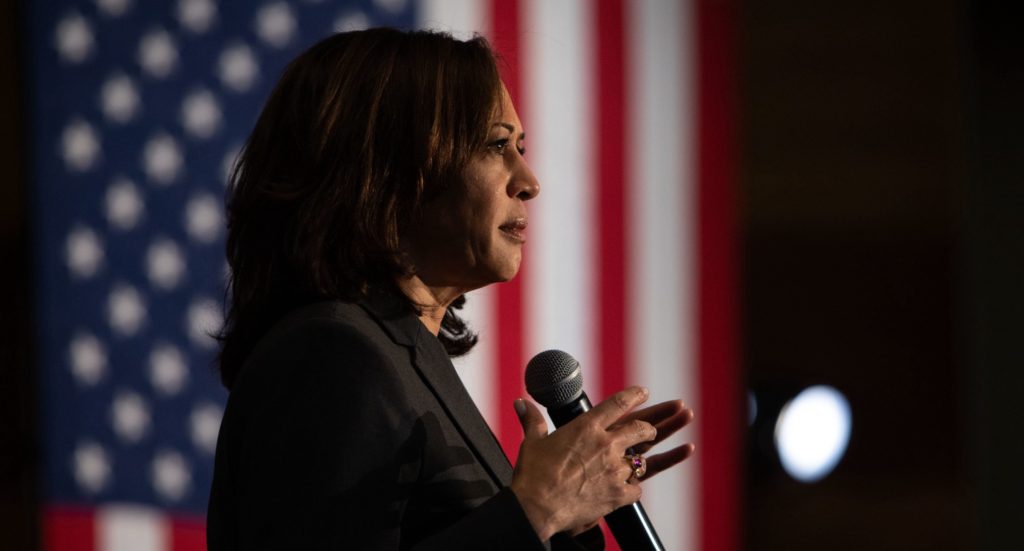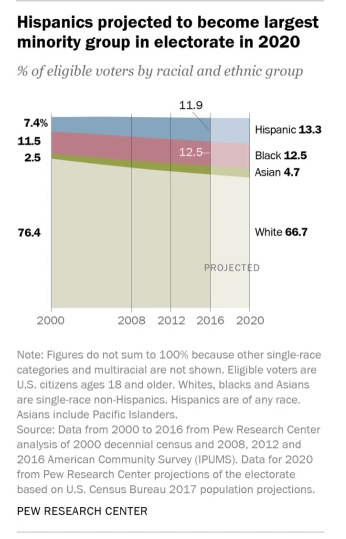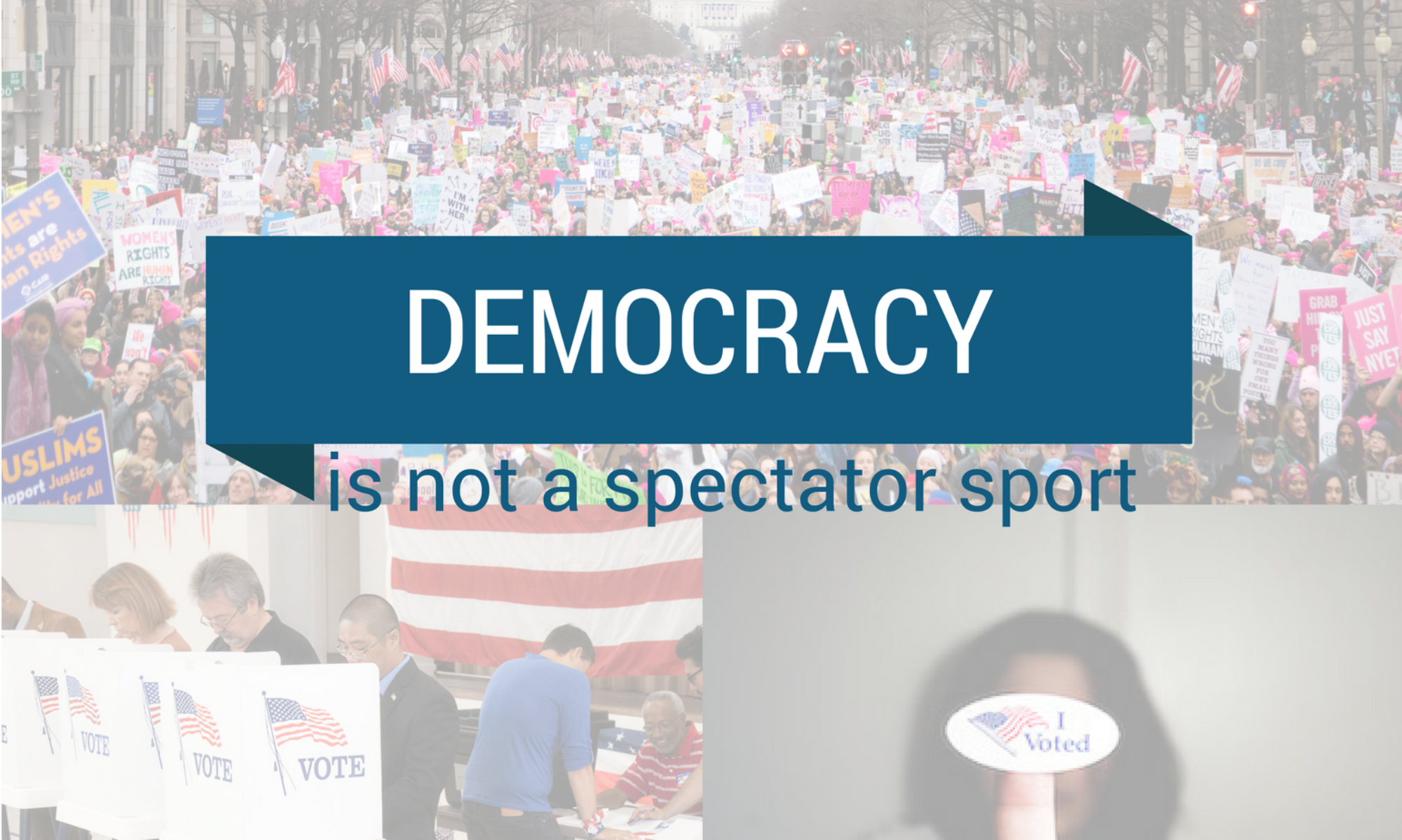We vote because we have a voice. That voice may not win out but our democracy is based on the constant struggle to make this “a more perfect union.” That’s why so many of the ills of society could be amended: to make way for the African American voice, to make way for the voice of women. That is what our vote should be. That is at the heart of how our system works and why we critique it to make it better.
Right now the biggest obstacles for a fair election are:
- Election security: given 2016, not to mention issues in other close elections, foreign government interference and our own methods of counting votes needs major security beef ups.
- Voter Suppression: not everyone is able to vote, which Stacey Abrams is tackling;
- Gerrymandering: which manipulates how votes are counted giving an unfair political advantage to one party, the GOP in this case, that therefore ensures the other party’s voice is never heard
- Special interests: the money driving candidates and elected officials.

This last issue of money is the major factor of what has driven Senator Kamala Harris out of the presidential race. Whatever you thought about Sen. Harris as a candidate, her departure was abrupt, and her voice was crucial, especially in an election where the black electorate is heavily coveted and she was a black and South Asian woman that gave voice to that community — the very demographic being wooed.
If money is the sole determining factor in elections, then it will continue to reflect the economic gaps based on racial inequalities. The only other minorities left are Sen. Corey Booker who is struggling to stay in the game, and Julián Castro, a candidate already active in the black and Latino communities and in touch with the issues of the times, who had to drop out but now is back in for the next debate.

That Castro was forced out so early is also a sign of inequity. While the black population may be the target of candidates, Hispanics are projected to be the largest racial or ethnic minority group in the U.S. electorate when voters cast their ballots next year.
The majority of viable presidential candidates are primarily those who do not resemble today’s America, such as two white male billionaires, a white man who is a career politician, a white man who may identify with LGBTQ community but openly has no issues with big money in campaigns; and the white supremacist favorite as per polls (can we do away with “alt right”), Tulsi Gabbard.
Who remains do not represent those who are part of the most coveted voting demographics and those who did no longer have the national stage for 2020.
That points to systemic issues here, folks.
1) One part is the overt sexism. There always needs to be caution to view every situation or individual through the lens of an -ism but not only has the 2016 election clearly showed sexism but as early as last month, one-third of voters say they don’t believe in female leadership as per a recent voters’ poll by Ramussen.
Castro today echoed this in a video he tweeted after Sen. Harris’s announcement about the media’s double standards that worked against her campaign from the start. Whatever other issues her candidacy may have had, as even Sen. Amy Klobuchar pointed out in the last debate: Women are held to a higher standard (like this LA Times’ op-ed which cites Sen. Harris’s apparent lack of qualifications in a race where Pete Buttigieg is soaring — whose sole political qualification is that he has been a mayor since 2012) and women of color doubly so. This isn’t to say one needs decades of qualifications nor that Buttigieg isn’t qualified, it simply means Sen. Harris, with actual decades of experience, is held to a higher standard by the media and voters.
2) Campaign finance needs an overhaul. This is an obvious issue when two billionaires are able to buy their way onto the next Democratic debate while qualified candidates who polled reasonably well with voices that need to be heard on the national stage have been forced to exit.
3) Castro also pointed out another issue that cripples diverse candidates: the order of the Democratic primaries which take place in states like Iowa and New Hampshire that have predominantly white populations.
“I think there’s a narrative that emerged early in this campaign cycle that in order to win, candidates needed to appeal especially to white working class voters in the Midwest,” Castrol said. “I actually believe that in addition to the white working class in the Midwest, we also need to be able to appeal to diverse communities [in cities in the battleground states.]
Election security, the electoral college, gerrymandering, and voter suppression are outside the scope of voters other than voting in reps who will fight for reforms or for the judicial appointees that will overturn these systemic issues. The electoral college is a Congressional issue so indirectly it depends on whom you vote for.
Castro, Warren, and Sanders have publicly stated that they will not accept big money for their campaigns. Castro, the former Housing and Urban Development secretary under President Barack Obama, has not accepted money from lobbyists, political action committees and executives in the fossil fuel industry.
Only one candidate has actively addressed this issue and who, you guessed it, has a plan: Sen. Elizabeth Warren. (This is not an endorsement.) Here’s her statement to get big money out of politics and her very specific plan to get it done. Warren isn’t to be trifled with given she has already single-handedly conceived of and established the Consumer Financial Protection Bureau, a watchdog agency that helps protect the little guy from Wall Street’s schemes.
No doubt that Sen. Harris will be a success in other capacities. She may become our next Attorney General. She will continue making her mark in the Senate and is going to kill it at the impeachment hearings — and has promised Trump the same.

But we can’t overlook or not examine what’s happening and why if we want this campaigning process to improve. AND we must elect the reps who will support such improvements — campaign finance reforms, the order of the primaries, a push to eliminate or revise the electoral college. Otherwise, it’ll be a vicious cycle as candidates we want can’t progress and others do who may be poorly qualified or can be bought. Such a system doesn’t reflect our choice nor our values we strive for and with poor leadership, no matter who wins, we all lose.
